Mazyar Ebrahimi was one of several Iranians who were wrongly accused of assassinating four Iranian nuclear scientists. On a trumped-up charge, he was tortured for five months, during which his foot was broken. He spent 16 months in solitary confinement and was in prison for 26 months before the case was dismissed — but not before he and others were forced to make TV confessions after being tortured.
In an exclusive interview, Ebrahimi spoke to IranWire about his harrowing experience. The first part of the interview was published on August 10, and the second part follows.
Ebrahimi is currently in Europe, where he is seeking asylum.
You said the judge on your case came to the prison twice and witnessed you being tortured but did nothing. Did you meet him again?
On Wednesday, July 20, 2012, they took me to see Judge [Abolghasem] Salavati. At the time I did not know who he was. There were a few of us. When it was my turn to go in, they removed my blindfold. “Hi baldy!” he said. “How are you? It is you, bigshot! Mazyar the Bald!” He went on and on, laughing and insulting me. “Do you know me?” he asked and I answered that I did not. Then he took off his glasses and moved his head this way and that way and said, “you have not seen me on TV?” and I said that I had not. “What does it say on my desk?” he said. “Branch 15 of the Revolutionary Court,” I said. Then he pointed to papers next to his elbow and said, “you see this? This is your death penalty. I have written it out and it is ready.”
I was scared out of my wits. Oh Lord above, I said to myself. Did they mean this when they said trial, trial, trial? This guy shoots first and asks questions later. They told me, “go there and repeat what you have said and you will be set free” — but this guy has already issued my death sentence!
Going back to the interrogations, when did the interrogators ask you in the presence of the Revolutionary Guards’ intelligence agents to take responsibility for the 2011 Malard explosion?
They mentioned it from the very beginning. A few times, on different occasions, they said that some of their colleagues would come and talk to me about it. Apparently they had made a few appointments with the Revolutionary Guards’ intelligence service but each time the appointment did not work out.
But it was not only about the Malard explosion. They also talked about an explosion around Isfahan. This happened in Isfahan’s Zarin Shahr [area] on December 28, 2008. They said it was a defense industry’s munition factory. Of course, it was also rumored that it was a nuclear site but the Israelis said that [the explosion] was an act of God.
They were very insistent about this explosion. In the end the interrogator said, “you have been there” and, as usual, provided the “clues” as well. Do you remember in school when they told us to construct a sentence with the words “dad,” “horse” and “came”? And of course I wrote down all of it so they would not beat me. Whenever I lost track I asked, “what was it?” or “where was it?” and the interrogator told me. For instance, the dates and names of the places. After I wrote these things down, I would not be bothered for a week. But after a week, when they came back for me to write down details, I could not remember what I had written before. The interrogator said I had written 300 pages but not even two pages corresponded.
You wrote down what they wanted but they accused you of not telling the “truth” and tortured you again?
They told me what to write but after a few days I forgot what I had written. “I have not done anything wrong,” I told them. “You told me what to write.” And the whole thing started again — beatings, the cable and the torture. During those seven months of interrogations, four different interrogation teams came to both Evin and Detention Center 300 and interrogated and tortured me.
Why do you think they changed interrogation teams? Did they work in shifts or was it because certain interrogators could not get results and so were replaced? Or was there some other reason?
It was clear that they investigated [what I had said]. One day, after torture by the interrogators’ boss — the same one that I said had a terrifying voice and was the most savage person that I had seen in my life — I ran out of things to say so I said that I was a member of Komala [an armed Kurdish opposition party]. “Aha!” he said. “Now you are talking.” After two or three months, another team arrived. One of them was an interrogator who was missing two fingers. “I have lived with Komala,” he said. “I asked my sources in Komala but they said that nobody has seen you there and you are lying.” “God bless your father’s soul,” I said. “I said the same thing from the very beginning.”
Why did you choose Komala? What was it that you wanted to imply to them?
The interrogator insisted that I was working for some place — CIA, Mossad or MI6. They asked me what I was doing in 2009 so I said I was with Komala. I wanted to stop the torture one way or another.
They already had the confessions they wanted from you in writing and on film. Did the continued torture have anything to do with the trial or was there something else?
Yes, they were very adamant that I must say the same things in court. This is what was confusing. I did not have the faintest idea what was going on. I am not a lawyer but I was under the impression that, like everywhere else in the world, during a trial the court would not accept confessions produced under torture. But the prosecutor and judge came over and saw that I was being tortured and told me to confess.
In that time, did you ever come across an interrogator or a guard with a little sense of humanity who did not like what was being done to you?
They beat me senseless. Every day they tried something new on me. One day they would hang me [from the ceiling]. One day they would use [a manacle to tie one hand from the back to the other hand placed over the shoulder] and then one day they would make my body black and blue all over [by hitting me] with a cable. One day, at Detention Center 300 outside Evin when it was pitch dark, somebody opened the food hatch and said, “Mazyar, come close to the hatch,” and then the same voice asked, “did they hit other places on your body with a cable besides your feet?” I said yes. He said, “take off your clothes and turn your back to me.” I did. I turned completely so that he would see the marks of the cable on my body. It was obvious that he was speaking with another person. “You see?” he said.
I could not understand what was going on. Some of the guards would tell me, “it will work out and, with God’s help, it will end.” And some other guards told me: “cooperate!” It was a strange place.
You said that after the first month in solitary confinement they took you to Detention Center 300 outside Evin Prison. Where was it and how did they take you there?
One night they told me to gather up my blanket and other belongings. I thought I had been released. I came out and they took me to the door of Ward 209. It was clear that there were others there as well. They cuffed my hands from the back and shackled my feet. They taped my mouth shut with a wide adhesive tape and, of course, I had my blindfold on. They packed us like sardines and put us into a van. There were several of us. Then they took us to some other place. It was clear that they had turned a building with little apartments in it into a jail. I think we were the first bunch to be transferred there because it was obvious that construction had just ended and everything was new — tiles and everything. My cell, for instance, was 2 by 2.5 meters and it must have been the storeroom of an apartment.
Do you know where this Detention Center 300 was located? Was there any chance for you to find out exactly where you were being detained?
It was a barracks because you could hear marches and military music. For around 10 to 15 days I had a horrible toothache. They took me to the clinic there. A clinic official said, “for two weeks I have been trying to get a letter that would allow us to bring you here and pull your tooth out.”
Inside the clinic they removed my blindfold. I saw that everything on the walls was in Arabic. All the signs on the doors were also in Arabic. I know Arabic because I lived in Iraq but it was very strange that everything was written in Arabic instead of Persian.
At Evin Prison torture like hanging [people] upside down, kicking ribs and electric shocks were not used, but at Detention Center 300 I was subjected to every kind of torture. All day and all night my hands were cuffed and most of the time my feet were shackled, too. They would leave the shackles unlocked when my feet swelled after they were beaten by a cable and they were not able to lock them.
Where did they move you to after Detention Center 300?
I was returned to solitary confinement at Evin. I believe it was around November 2012, approximately five months after my arrest. For a while it was like I was resting. Then I had a few interrogation sessions. In these sessions the bastards did not beat me with cables, but they did tie me to the bed. They tortured me psychologically because at every moment I expected to be beaten with a cable. It was an agonizing situation. At every moment I expected the cable to come down [on me] and this prospect, this constant expectation of the first lash, increased the agony a hundredfold.
During solitary confinement, whether at Evin or at Detention Center 300, did you ever hear screams and the sounds of crying from others who were being tortured?
In those four months that I was at that horrible detention center I always heard such voices. It really was a horrifying place. The walls were made of stone and echoed the sounds in a horrible way. One of the reasons for the neurosis that I am now suffering from is the screams that I heard at that time. Even now if somebody next to me screams I might involuntarily hit him with my fist. The same for the sound of a door locking or the sound of a slamming metal door. I always prayed that they would not open the cell door.
Twice they took me for mock executions. They put the noose around my neck. Of course, it was meant to be torture. But, believe me, I wished they would execute me for real. And then the guy would say, “your verdict is ready. You only have a week to cooperate with the gentlemen.”
After seven months in solitary confinement, intelligence agents from the Revolutionary Guards came to interrogate you about the explosion at Malard missile base. What happened in that session?
For almost a week before the Guards’ intelligence agents were to come, they prepared us for what to say and how to answer. As I said before, when they came, the Guards’ agent said, “you confessed that it was you who flipped the switch for the explosion at Malard. Where were you when you activated the switch?” I told him that I was behind the base’s fence. He furiously jumped up from his seat and, cursing me, said, “who taught you this nonsense to tell us? The wave of the explosion broke all the windows for a radius of 25 kilometers and 177 were killed but now you say that your ears escaped unharmed? What is going on here?” I threw caution to the wind and told him, “I was tortured and they wanted us to say this.”
What happened next? Did they return you to solitary confinement?
Yes, I was returned to solitary. Nobody bothered us until June 15, 2013, when they took me again to Evin courthouse to see the same judge who had read me my charges the very first day. His name was Mostafapour or Mostafavipour. I don’t quite remember. He was a thin, tall young man with a slightly pockmarked face.
The judge told me to write down what had happened. “Which one?” I asked. “Not what you said during interrogations but what happened to you in the course of interrogations,” he said. I said that I had been tortured and he told me to write it down. Basically, he had two questions. “This is the charge against you,” he said. “Do you admit it?” I said no. He told me to write why and I wrote three or four pages.
Then he took me to his office. I asked him why I had been arrested and why I had been brought there a year and a day later. “Mr. Ebrahimi, we have nothing against you but a number of people have testified against you,” he said. Again I was returned to solitary. The next week again this Mr. Mostafavi called me. And there I saw that my brother Babak had been arrested as well. I saw him, and until then I had no idea that Babak had been arrested.
Did your situation at the detention center change after your second meeting with Mostafavipour?
The guards behaved differently. The month of Ramadan had started. There was one group of guards who were there during the four months that I was there. They were really good kids. When it was their shift they joked, even for no reason at all. They did not insult us. Unlike other guards they did not treat us like garbage.
And all throughout that time you had not been able to contact your family?
No. For 16 months I could not make even a phone call to my family. The only time that my family saw me was when my confessions were aired on TV. For 16 months I was in solitary confinement at Wards 209 and 240. Then they transferred all of us to Ward 209, to cells that were a tiny bit bigger than if you removed the wall separating two solitary cells. They kept three or four us in such cells.
When you were taken to these new cells, did you share a cell with the people that they showed in the video? Or were there others as well?
My first cellmate was Jalal Farahi, Maryam Zargar’s brother-in-law. He is, of course, not in the video. The moment I entered the cell I said that I was Mazyar Ebrahimi. I did not know him but he introduced himself and said, “please forgive me. I wrote things about you but these bastards beat me so much that I had no other choice.”
After a while they took me to another cell with two brothers, Mojtaba and Mostafa Nouri. They are not in the confessions video either but they were charged in the same case. They were from Zanjan and had an engine repair and spare parts shop around Karaj. Mostafa, the older brother, said the same thing Jalal Farahi had told me and asked for my forgiveness. Everywhere that I went they asked for my forgiveness. One of them even told me, “they showed me your picture and I said to myself that he is bald and, therefore, must be guilty. So I said ‘yes, that is the one.’” Sometime later a gentleman by the name of Ranjbar was our cellmate. He was not in the confessions video, either, but was a codefendant in the same case.
So who of those that appeared in the confessions video were your cellmates during that time?
From among those whom I later saw in the video, Behzad Abdoli, Ayub Moslem and Arash Kheradkish were my cellmates for a time. Nader Nouri Kohan was also our cellmate for a while. He was not in the confessions video but he was released alongside us in early 2014, unlike the rest, including my brother and my brother-in-law, who were released in the summer of 2014. Unlike the others, I knew Nader from Sulaymaniyah. He was our neighbor. He had won a bid through a road construction company, and, like me, he lived and worked in Sulaymaniyah. He lived in the block next to our apartment building. But, apart from these few, I have met none of my codefendants.
You said that your business competitors framed you and had you arrested. But why were Ms. Maryam Zargar and people she knew arrested?
I heard that Ms. Zargar worked for an official in Rasht. I do not know whether this official was a member of parliament or the governor. Perhaps her arrest had something to do with her job. She traveled to Sulaymaniyah a lot.
Later I learned that Nader Karbasi, head of Sanandaj Passenger Service Cooperative No. 5, which ran a daily bus service to Sulaymaniyah, as well as the cooperative’s ticket agent and the drivers on that route — everybody, in short — had been arrested and spent some time in detention.
Do you know where Maryam Zargar is now?
Unfortunately no. I only met Behzad a couple of times when he was in Tehran and, as far as I know, he has no news of her, either.
What else do you know about Ms. Maryam Zargar?
It seems that she had studied law. Her sister, Ms. Fatemeh Zargar, is a very respectable lady. Once Judge Shahriari took me to meet her. He had told me that he knew that I had been beaten. They had watched the video. He said, “this lady was also beaten but she did not talk.”. And Fatemeh Zargar asked me whether I was Mazyar Ebrahimi. When I said that I was she started crying. “Were you beaten, too?” I asked. She said yes. How many lashes, I asked. She said 10 or 15. When I said that I had received over 600 lashes with a cable, she started crying again.
Did you ever meet Maryam Zargar up close?
Only that time that I heard her voice when they told me to keep my blindfold on and she said, “this dirty, stupid person is him.”
So would you say that the connection between all the detainees in this case was that they traveled to Sulaymaniyah? Because, for instance, I o know that Ms. Nashmeen Zaré and her husband Fouad Faramarzi had once traveled to Sulaymaniyah on vacation.
No, because, for instance, Jalal Farahi had never been to Sulaymaniyah. I believe that at most seven or eight of them had traveled to Sulaymaniyah.
So can you see any connection between the detainees in this case?
My brother Babak, my brother-in-law Hossein, Mr. Erfanian, who was my colleague at my company, and I were all arrested in connection with my contract with IRIB [Islamic Republic of Iran Broadcasting]. All the rest, from what I hear, were connected to Ms. Maryam Zargar. They themselves joked that they had brought in everybody who was on her mobile phone’s contact list. “If you dislike somebody we can bring him here,” they said.
It seems that all of them had some kind of connection to Ms. Zargar. Of course I do not know what kind of connection — friendship, work relations, family connections, or what. At different times during the last few months I was cellmates with Behzad Abdoli, Ayub Moslem, Nader Nouri Kohan, Arash Kheradkish and Jalal Farahi. Jalal Farahi was this Ms. Zargar’s brother-in-law. Behzad Abdoli said that he knew her for a few months and they came for him because his number was saved on her mobile phone.
When and where was your brother Babak arrested and for how long he was in jail?
They arrested Babak in September 2012, almost three months after me. Babak lived in Syria and his wife is Syrian. They arrested him and his wife, who was pregnant at the time in Syria. Babak was a prisoner in Syria for a month and then they transferred him to Lebanon, where he also spent a month in a Hezbollah prison. His wife was released from prison in Syria after a month but they returned Babak to Syria and after a while they transferred him to Iran.
Babak said he was treated extremely politely in the Syrian and Lebanese prisons, but that the Syrian prison was very filthy. They tortured him a little bit in Iran until early 2014, when he was released along with others. Behzad Abdoli, Ayub Moslem, Arash Kheradkish, Nader Nouri Kohan, Ms. Maryam Zargar and I were released in early summer of 2014.
After you were released, was anybody else from that group released? Or did they remain in prison?
All of them were released and nobody remains in jail. On the last day before we were released the guard had become so kind to us that he offered to give me a book. “Do you know how much they have spent on this case?” he said. “100 billion tomans [over $38 million at the 2014 official exchange rate].” They spent 100 billion tomans on this absurd case. How can it be that an institution called the intelligence ministry have so much power and such a big budget?
After you were released, did you get a chance to talk with your family about how they felt when they watched the video of your fake confessions and about what it did to them?
My mother had a heart attack when she watched the video. My sister says that my mother collapsed as the video was being aired. I have a few good friends and I wish them success wherever they are now. With my absence, and that of my brother and my brother-in-law, they really helped my family and my sister and they took my mother to the hospital.
After I was released these same friends pointed me out to the neighbors. None of them could believe that I was the same guy. One of my friends asked the neighbors whether they remembered my sister’s screams. “This is the brother,” he said. All of them remembered the heart-rending screams of my sister.
After the confessions video was aired, didn’t somebody contact your family and ask them for money, allegedly to help you?
A short while after the video was aired, some people visited our family and said that if they gave them one billion tomans [over $800,000 at the time] they would arrange it so that my death penalty would be reduced to life in prison. My father and sister set out to sell their homes so as to raise the money. Fortunately, however, they did not do it and just in time realized that it was a scam. But I ask myself one question: with a case like this, who would dare to make such an offer to my family?
This has happened in politically-charged cases before, as in the case of the journalist Siamak Pourzand. Do you have an answer for your question?
Who could do such a thing besides the agents of the intelligence ministry? One of our relatives advised my father not to pay the money. “They just aired a video of him,” the relative told my father. “There has been no trial so no death penalty sentence has been issued so that you could pay money to reduce it to life in prison.”
Then my family went to the prison and the court to ask about us but nobody told them where we were. But they continued searching for me. In Iraq, I had a Nissan Patrol car that I had bought for $67,000. My family sold the car for $55,000 and deposited $50,000 of it into the personal bank account of the go-between just so he would tell them where I was and how I was doing.
Through what channel did this go-between contact your family and how much was he asking to provide them with answers to these two questions?
Apparently this gentleman had a law office and had contacted the family through a relative of ours. He had asked for $50,000. He always informed the family about me and told them, “Mazyar is in good health, has no problems and the case is moving in a good direction.”
I have a catchphrase that all my family and friends are familiar with. I always said, “go up and be happy.” During the interrogation there was one of the interrogators who sympathized with me and repeated my own catchphrase to me. After I was released I went to see this go-between. He told me that the person who brought the news about me from inside the prison was the same one who always told me, “go up and be happy.”
I am posting, one by one, all these documents and evidence on Twitter.
As far as you know, were all the people who were on the confessions video with you arrested at the same time?
No, I later learned that they were not arrested at the same time. For instance, Behzad Abdoli and Ayub Moslem, who were released with me, spent 28 months in prison, whereas I was detained for 26 months. In other words, they were arrested two months before me. They had also arrested a group of people after me but almost all of them were released after a few months. My brother-in-law Hossein, however, was released after the Revolutionary Guards entered the story, meaning in early 2014. Hossein was in prison for 13 months.
After you were released, did you file any complaints about the fact that you were imprisoned without a reason, about the torture, the damage done to your life and all the injustice done to you?
I lodged a complaint against the intelligence ministry and, of course, I got nowhere with it. I lodged two complaints against IRIB for broadcasting the video and for the €1 million that they still owe for the contract. The first complaint is for libel and dissemination of lies because of the video that they aired. Even judiciary officials were saying that they had not given IRIB permission to broadcast the video.
There is a group of European and American companies that the Islamic Republic of Iran Broadcasting still buys equipment from. I call on these companies to stop their dealings with Iran because, in fact, they are selling instruments of torture to this organization.
Related Coverage:
The Judge Threatened to Sentence Us to Death if We Didn’t Confess, August 10, 2019
Iranian TV Aired My Forced Confessions. It Should be Boycotted, August 9, 2019
visit the accountability section
In this section of Iran Wire, you can contact the officials and launch your campaign for various problems






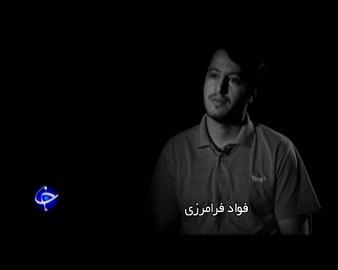
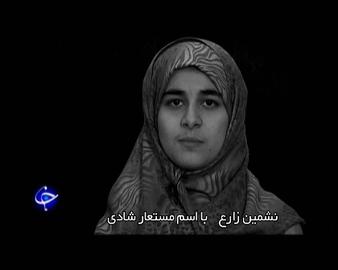

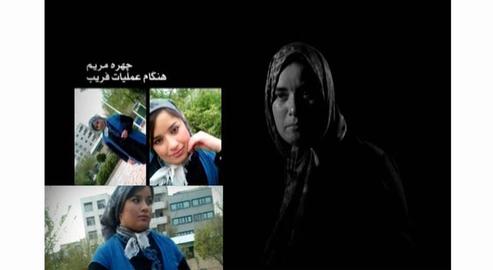
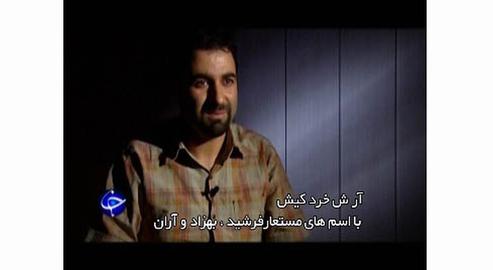



















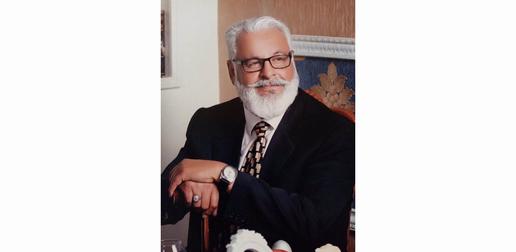
comments